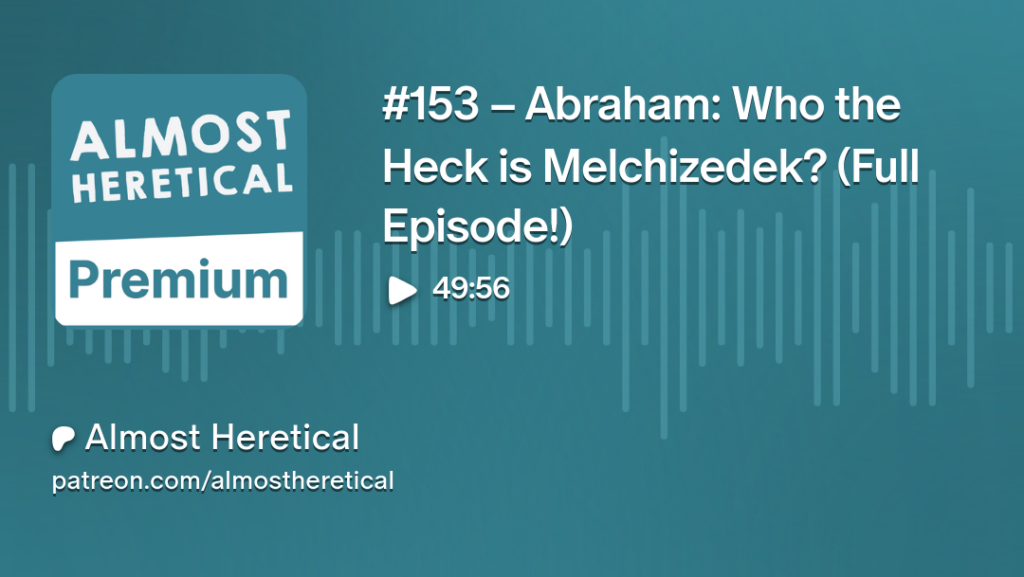Abraham and Melchizedek
Abraham’s story is central to the Bible, but two often-overlooked figures—Melchizedek and Hagar—hold fascinating secrets that reshape how we understand biblical history, Jewish thought, and even Christianity itself.
Melchizedek appears mysteriously in Genesis as a priest-king of “God Most High”, blessing Abraham and disappearing just as quickly. But later Jewish texts, including the Dead Sea Scrolls, transformed him into something far more cosmic—an end-times judge and divine figure. The New Testament book of Hebrews connects Jesus directly to Melchizedek, but why? And how did ancient Jewish communities already see him as a key to understanding God?
Meanwhile, Hagar’s story is even more radical than we were taught. A marginalized Egyptian slave, she is the only person in the entire Bible to give God a name—El Roi, “The God Who Sees Me.” Her son, Ishmael, becomes the forefather of Islam, tying her directly into one of the world’s largest religions. So why does the Bible’s focus shift away from her? And what does this say about how stories were shaped over time?
This episode takes you beyond Sunday school interpretations and into the hidden histories, evolving traditions, and overlooked voices that make the Abraham narrative far more complex—and fascinating—than you probably ever realized.
Takeaways
- Melchizedek is more than a footnote in Genesis—later Jewish texts and the Dead Sea Scrolls saw him as a divine, apocalyptic figure.
- The New Testament authors used Melchizedek to connect Jesus to an ancient, mysterious priesthood.
- Hagar, often dismissed in Christian teachings, plays one of the most radical roles in the Bible—she is the only person to name God.
- Her son, Ishmael, is central to the origins of Islam, revealing how Abraham’s legacy extends beyond Judaism and Christianity.
- Abraham wasn’t a poor, wandering shepherd—he had a private army of 318 men, pointing to his power and influence.
- Oral traditions and later editorial additions shaped the Abraham story over centuries, changing how we read it today.
- The “wife-sister” narratives in Genesis happen twice, suggesting multiple versions of Abraham’s story were combined.
- Jewish mysticism reinterpreted Abraham’s call as an inward, spiritual journey, not just a physical move.


